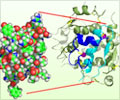People with higher intakes of vitamins B2 and B6 from food or supplements have a lower risk for type 2 diabetes, found study.

TOP INSIGHT
Both Korean men and women who drank at least one cup of black coffee a day were less likely to develop prediabetes or type 2 diabetes than those who drank no coffee.
Fewer new diabetes cases seen in people who eat more plant-based foods
In a study of 2,717 young adults in the U.S. with long-term follow-up, people who increased the amount of fruits, vegetables, whole grains, nuts and vegetable oils in their diet over 20 years had a 60 percent lower risk of type 2 diabetes compared to those with a small decrease in plant foods. The findings suggest that long-term shifts toward a more plant-centered diet could help prevent diabetes. Yuni Choi, University of Minnesota-Twin Cities, will present this research on Tuesday, June 11, from 11 - 11:15 a.m. in the Baltimore Convention Center, Ballroom IV (abstract).
Large study points to importance of vitamins B2 and B6
Findings from a study examining three large cohorts of U.S. health professionals suggest that people with higher intakes of vitamins B2 and B6 from food or supplements have a lower risk for type 2 diabetes. The study, which included more than 200,000 people, also revealed that consuming higher levels of vitamin B12 from foods was associated with a higher type 2 diabetes risk, which may be due to consumption of animal products. Kim V. E. Braun, Erasmus University Medical Center, will present this research on Sunday, June 9, from 3:15 - 3:30 p.m. in the Baltimore Convention Center, Room 319/320 (abstract).
A new study reveals that changing the order in which food is eaten could reduce post-meal blood sugar spikes. The researchers found that eating rice first and then a vegetable and meat caused significantly higher blood sugar levels after eating compared to other sequences. The results point to a simple but effective way to lower blood sugar levels after eating, which could prevent the transition from prediabetes to diabetes. Christiani Henry, Singapore Institutes for Clinical Sciences, will present this research on Saturday, June 8, from 12 - 1 p.m. in the Baltimore Convention Center, Halls A-B (poster 56) (abstract).
Coffee may lower risk, especially for people with gene variant
A study of more than 4,000 Koreans adds evidence that drinking coffee may lower the risk for developing type 2 diabetes and reveals that a genetic factor could be involved. The association between drinking coffee and lowered risk for type 2 diabetes was strongest for Koreans with a genetic variation known as rs2074356, which was recently found to be linked with habitual coffee consumption. An Na Kim, Seoul National University, will present this research on behalf of Taiyue Jin on Monday, June 10, from 1:45 - 2:45 p.m. in the Baltimore Convention Center, Halls A-B (poster 502) (abstract).
Source-Eurekalert
 MEDINDIA
MEDINDIA




 Email
Email










